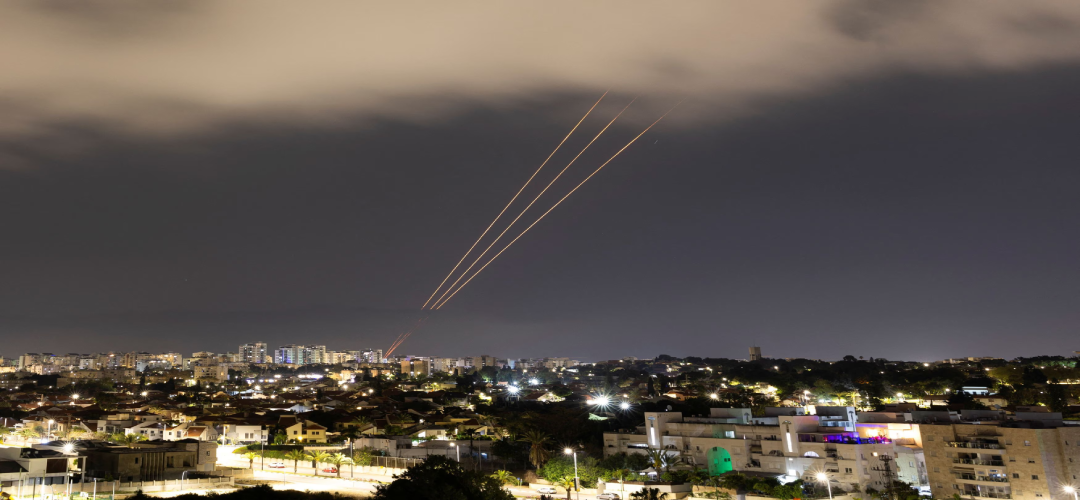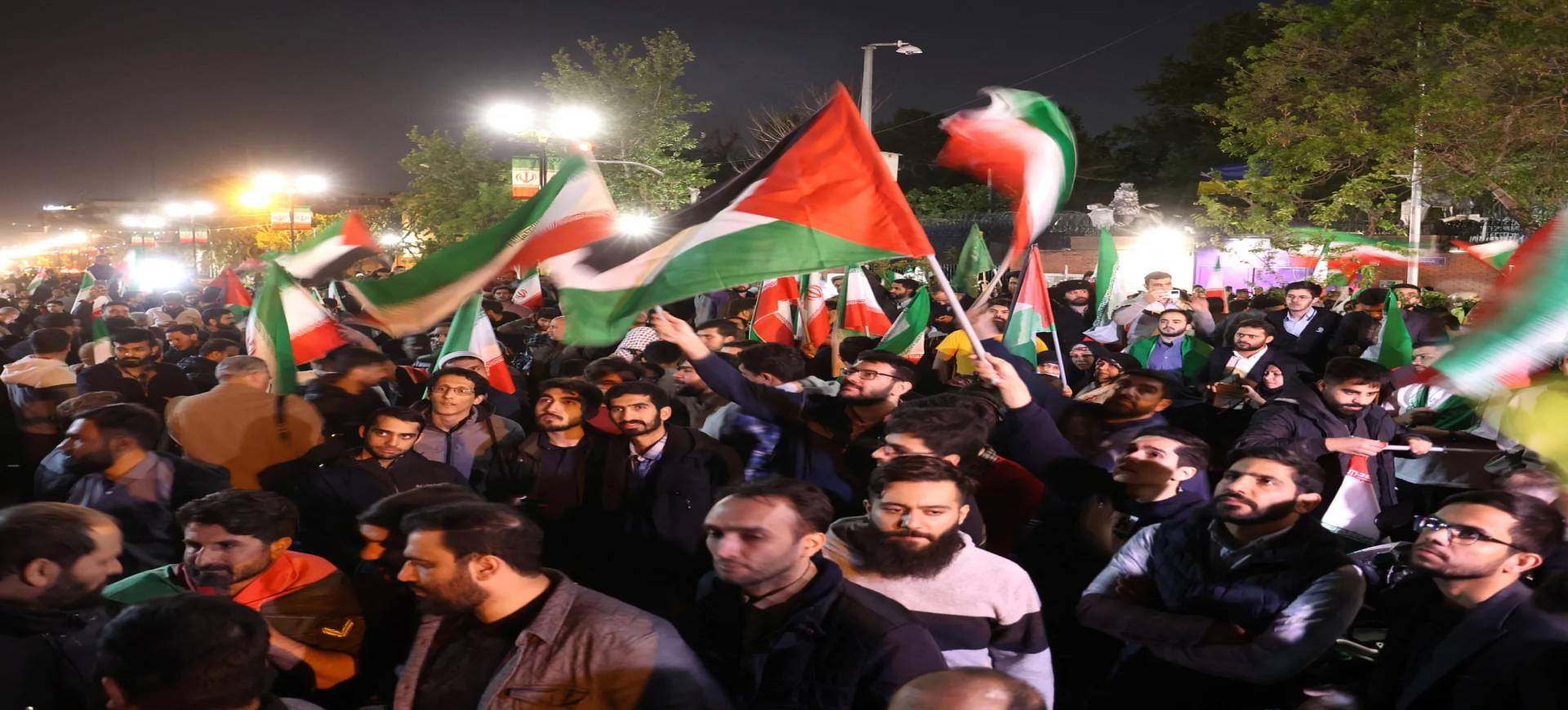Caught in a Quandary
April 20, 2024 | Expert Insights

Last Sunday, as the world woke up to the news of Iran launching its much anticipated "revenge assault" on Israel, the pro-Israel channels crowed about the efficacy of the air defence systems of Israel assisted by its Western allies in knocking out from the skies, "99 per cent" of the projectiles. However, one name that stood incongruously in this list was Jordan, which, unlike most of its Arab counterparts, reportedly intercepted and shot down “dozens” of drones or missiles that were crossing its airspace and were headed for targets in Israel.
Now, internally and externally, Jordan is increasingly criticised for this 'good neighbourly' act.
Background
Jordan shares a border with Israel and is home to the largest Palestinian diaspora. Not only has it historically been a key Palestine supporter, but its leaders, King Abdullah and Queen Rania (herself of Palestinian origin), have also been critical of the war in Gaza. Given that Palestinian refugees comprise a sizable portion of Jordan’s population, it is no surprise that it has witnessed thousands of people protesting the Gaza crisis. The military intervention has sparked anger domestically in Jordan more so than regionally in what is perceived as a betrayal of the Palestinian cause.
Amman justifies its involvement on the basis that it was defending itself and protecting its sovereignty in its airspace. Officials argue that the Iranian drones and missiles pose a real threat to Jordan. The government continues to criticise Israel's treatment of Palestine and supports a two-state solution.
While other Arab states have avoided commenting on the crisis, Kuwait and Qatar allegedly refused U.S. requests to use their bases to defeat Iran’s attack. Qatar, adept at small-state diplomacy and balancing different sides, has managed to maintain ties with Iran to preserve its security while also hosting major U.S. military bases.
Israel and its allies managed to intercept the majority of more than 300 Iranian munitions. Nearly the entire round of ballistic missiles and drones were intercepted before they could hit their targets in Israel, more than 1,100 miles (1,770 kilometres) from their launch points. The formidable, multi-pronged missile defence system shot down 99 per cent of the total of around 170 drones, over 30 cruise missiles, and 120 ballistic missiles before they reached Israel. Jordan reportedly intercepted dozens of missiles near the Jordan Valley and along the Jordan-Syria border.

Analysis
Iran’s recent attack on Israel marked the first time in more than thirty years that missiles targeting Israel entered Jordan’s airspace. The last time was during the Gulf War when Saddam Hussein launched missiles at Israel in 1991.
However, the regional context has changed since then. Jordan became the second Arab country to sign a peace deal with Israel in 1994 and became key to its security. It has close intelligence and security ties with Israel. Additionally, it shares close ties with Israel’s Western allies like the United Kingdom (UK) and the United States: it hosts U.S. troops. It heavily relies on US military and economic aid. Having no oil to sell or other natural resources, Jordan has to be adept in using its geography to extract the maximum concessions from the West, especially the UK and the U.S., as well as its neighbour Israel.
The peace treaty with Israel has historically been unpopular at home but has become increasingly so since the Gaza war. More than 50 per cent of the country’s population is either Palestinian or of Palestinian descent. This conundrum has led the Hashemite Royal House to walk a fine balancing act amidst growing public outrage and its improved ties with Israel and close alliance with the US.
The government confirmed that the interceptions were intended to protect citizens and residential areas as there was a real danger that some projectiles could fall short into Jordanian territory. However, anxiety about repercussions persists as Tehran hinted at a retaliation against Jordan.
Jordan was keen not to portray its motives as thwarting Iran itself but as a general policy of protecting its airspace and sovereignty. The government cited a long-running policy that applies to any projectiles, drones, or other such objects entering its airspace, irrespective of which country is launching them.
With hostilities escalating between Israel and Iran and the threat of an imminent regional war, Jordan is on high alert as it strives to ensure it doesn’t become a battlefield for other parties.
Jordan-Israel cooperation in intelligence and security has been ongoing, although the leadership is discrete to avoid public criticism. Experts point out that Jordan's contribution to the operation is as much about its interests: Iran has long sought to increase its presence in the country and undermine the monarchy's stability. For instance, a week before the attack on Israel, Iran's media declared that Hezbollah was prepared to arm 12,000 "Islamist resistance" fighters to overthrow the monarchy.
Some Arab countries like Qatar are likely to be critical of Jordan's participation in the operation defending Israel. However, others may silently support its decision as they are wary of Iran.
Assessment
- As regional tensions escalate, Jordan will have to avoid aggravating a belligerent Iran without losing the support of its Western allies and Israel.
- The monarchy government will also have to carefully navigate popular outrage against Israel’s ruthless war on Gaza while still safeguarding against Iran’s bid for influence, its gamut of non-state actors, and defending its now vulnerable airspace.
- While its location forced Jordan to join the efforts to knock out the hordes of missiles, other countries in the region would silently support its action. The capability displayed by Iran in mounting this operation was impressive by any standards and would surely give sleepless nights to many Arab monarchies in the region.








Comments